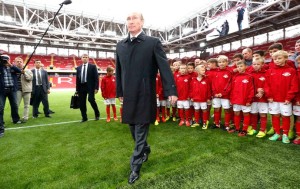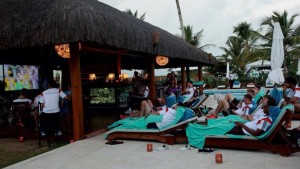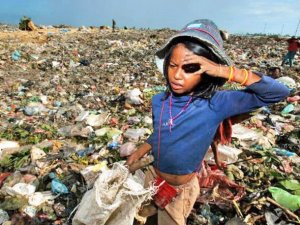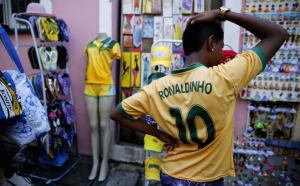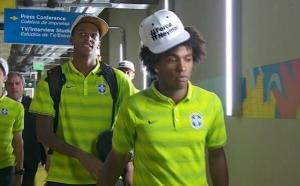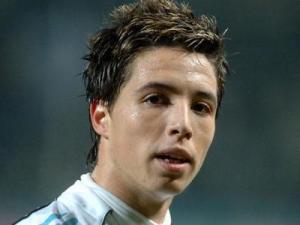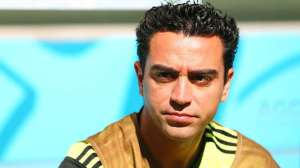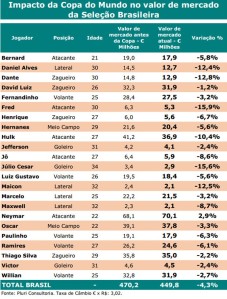
É comum quando uma seleção disputa a Copa do Mundo e fica bem posicionada, ou surpreende com boa campanha, ter os seus principais jogadores valorizados. Em condições normais, a quarta colocação deveria colocar em evidência os 23 atletas inscritos. Mas não é bem isso que acontece com o Brasil a três dias do fim da janela de transferências no principal mercado, o europeu. Após as derrotas para Alemanha (7 a 1) e Holanda (3 a 0), na reta final, apenas o goleiro Julio César conseguiu uma boa mudança. Deixou a reserva no Queens Park Rangers para disputar posição, de fato, com Arthur Moraes no Benfica.
O goleiro, que não seria aproveitado por Harry Redknapp no QPR, assinou vínculo com os Encarnados por duas temporadas. De acordo com a Pluri Consultória, Julio César saiu do torneio com uma desvalorização de 15,6%. Mas a ida para o Benfica demonstrou o contrário. Quem também se valorizou no mercado foi David Luiz. Porém, o negócio foi sacramentado antes do Mundial no Brasil. O defensor deixou o Chelsea para atuar no Paris Saint-Germain, que desembolsou cerca de R$ 180 milhões.
– Estou muito feliz. O Benfica tem muito respeito internacional. Depois, já joguei no Brasil, Itália, Inglaterra e faltava jogar em Portugal. Era um namoro antigo. Isso despertou algo dentro de mim e pensei por que não? Deu tudo certo e agora quero agradecer às pessoas envolvidas. Espero tentar corresponder às expectativas – afirmou Júlio César, em entrevista à Benfica TV.
Os outros 21 jogadores chamados por Luiz Felipe Scolari seguiram em seus clubes. Os mais velhos, com poucas chances de retornarem à Seleção, como Dante, Fred e Daniel Alves, também apresentaram desvalorização de acordo com o estudo. O atacante do Fluminense, que chegou a ser cotado para o Milan, foi quem mais saiu chamuscado do torneio. Caiu 15,9% no mercado. O defensor do Bayern de Munique, cuja queda foi de 12,8% segundo a Pluri, viu seu clube contratar o marroquino Benatia, do Roma, e certamente perderá espaço.
Na Espanha, Daniel Alves viveu situação inusitada. Foi colocado à disposição e chegou a ser cotado como moeda de troca em transações pretendidas pelo Barcelona. Porém, seguiu no clube. Na atual temporada, ele terá a concorrência de Montoya, revelado nas categorias de base do time catalão, além do ex-são-paulino Douglas, contratado nesta semana. Marcelo permaneceu no Real Madrid, mas vai conviver com o rodízio imposto por Carlo Ancelotti e ficará no banco do português Fábio Coentrão em alguns jogos.
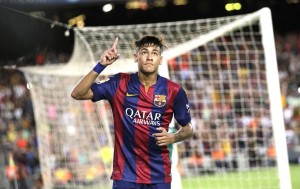
Neymar saiu ileso da Copa. Além de ter sido o destaque do Brasil, com quatro gols, o jogador, que sofreu fratura na vértebra no duelo contra a Colômbia nas quartas de final, não participou da goleada sofrida para a Alemanha por 7 a 1, na semifinal do torneio, e da derrota por 3 a 0 para a Holanda, na decisão do terceiro lugar.
Na Inglaterra, os jogadores do Chelsea seguiram em alta com José Mourinho e no mercado de transferências. Ramires, Oscar e Willian estão sempre entre os titulares. Porém, outro nome que atua no futebol inglês vai precisar superar o péssimo rendimento na Copa para voltar aos holofotes. Contratado pelo Tottenham antes da Copa das Confederações do ano passado, o volante Paulinho não vinha sendo aproveitado pelo técnico Mauricio Pochettino, mas começa a esboçar uma volta por cima. Nesta quinta-feira, fez um gol e deu uma assistência na vitória sobre o AEL Limassol, pela Liga Europa.
E Bernard? Destaque do Atlético-MG na conquista da Libertadores, o jogador já não vinha tendo muitas chances no Shakhtar Donetsk quando foi chamado para a Copa. Ganhou a vaga de Lucas, do PSG, durante a Copa das Confederações, mas não foi bem no Mundial. O que agravou a situação do jogador foi o fato de não ter se reapresentado no clube ucraniano logo após o período de férias. Aos 21 anos, ele alegou estar com medo da situação de conflito no país e só retornou oito dias depois do previsto, chegando a se desentender publicamente com o treinador da equipe por meio de entrevistas e postagens em redes sociais. Seu nome foi especulado em algumas negociações, entre elas com o Arsenal. Mas, até agora, nada foi concretizado.
A queda traumática na Copa refletiu na primeira convocação de Dunga. Dos 23 atletas que foram chamados por Felipão, apenas dez retornaram com o novo comandante. Dos mais veteranos, só Maicon, de 33 anos, e Jefferson, de 31 anos, foram lembrados pelo treinador. Enquanto o jogador do Roma permaneceu na equipe para a atual temporada, o camisa 1 do Botafogo chegou a ser cogitado no Benfica antes do acerto dos Encarnados com Julio César. Em 2018, o lateral-direito terá 36 anos e o goleiro, 35.
– Não tenho muito como avaliar isso no momento. Mas os nossos jogadores sempre são muito requisitados pelos clubes europeus – desconversou o novo diretor de seleções da CBF, Gilmar Rinaldi.
Neste domingo, a delegação começa a se apresentar em Miami, nos Estados Unidos, para o primeiro compromisso pós-Copa, dia 5, contra a Colômbia.
Reportagem de: 19.08.2014
Disponível em:
http://globoesporte.globo.com/futebol/selecao-brasileira/noticia/2014/08/com-o-fim-da-janela-na-2-lista-do-brasil-na-copa-tem-baixa-procura.html


